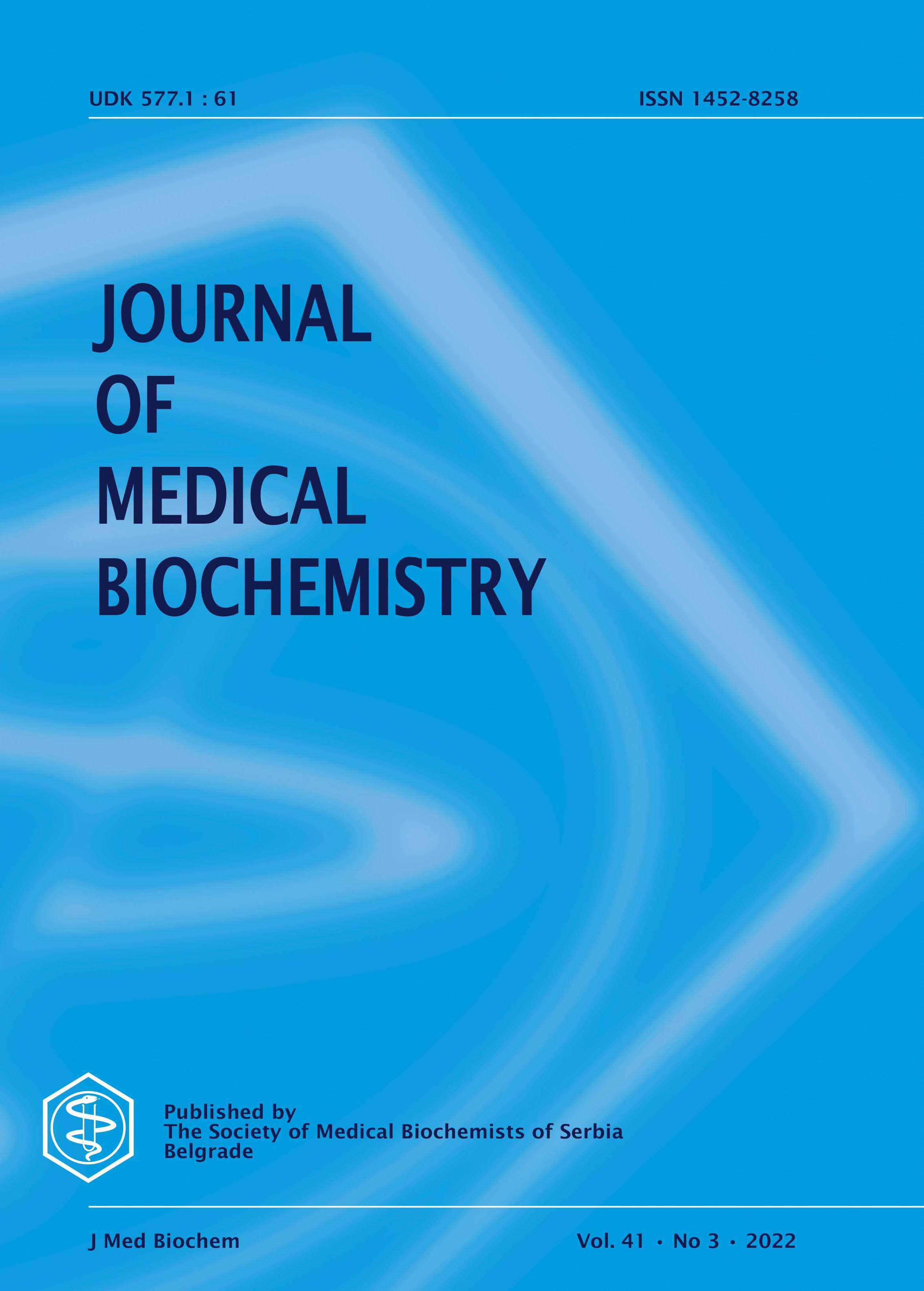Alkaline phosphatase interference in immuno-enzymatic assays.
Abstract
Background: Alkaline phosphatase (ALP) enzymes are widely used as signal amplifiers in immunoenzymatic methods. Conditions that cause ALP elevations, such as bone or liver diseases can cause interference in immunoenzymatic methods.
Objective: We aimed to examine ALP's effect on immunoenzymatic assay by adding isolated pure ALP to the prepared serum pool.
Material and Methods: We prepared a serum pool and divided into 4 groups. By adding isolated pure ALP at different concentrations to each group, we obtained sample groups containing ALP enzyme at concentrations of 85 U/L, 340 U/L, 870 U/L and 1570 U/L. In each group, 20-repetition of βhCG, Ferritin, FT4, TSH, Troponin I and Vit B12 tests were performed. Coefficient of variation, bias, and total error were calculated. All groups were compared by using Friedman test for paired samples.
Result: After ALP addition, the calculated total error values of FT4, βhCG and troponin I tests were found to be above the acceptable error limits. There were statistically significant differences in βhCG ,FT4, troponin I and Vit B12 tests when compared to the baseline ALP level (P<0,0125).
Conclusion: Isolated ALP elevations can be a source of interference for immunoenzymatic methods.
Keywords
Alkaline phosphatase, ALP, bias, immunoenzymatic, total error
Copyright (c) 2021 OSMAN oğuz, Huriye Serin, Fatma Hocaoğlu Emre

This work is licensed under a Creative Commons Attribution 4.0 International License.
The published articles will be distributed under the Creative Commons Attribution 4.0 International License (CC BY). It is allowed to copy and redistribute the material in any medium or format, and remix, transform, and build upon it for any purpose, even commercially, as long as appropriate credit is given to the original author(s), a link to the license is provided and it is indicated if changes were made. Users are required to provide full bibliographic description of the original publication (authors, article title, journal title, volume, issue, pages), as well as its DOI code. In electronic publishing, users are also required to link the content with both the original article published in Journal of Medical Biochemistry and the licence used.
Authors are able to enter into separate, additional contractual arrangements for the non-exclusive distribution of the journal's published version of the work (e.g., post it to an institutional repository or publish it in a book), with an acknowledgement of its initial publication in this journal.

